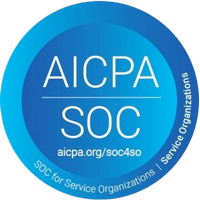The United States healthcare system is facing an extreme shortage of nurses. Despite your best recruitment and retention efforts, domestic talent may not be enough to fill the gaps. Increasingly, hospital recruiters and administrators are turning to the nurse visa to bolster their workforce. In fact, the demand for international nurses has risen to three or four times what it was at the start of the pandemic, according to Sinead Carbery, president of International Nurse Staffing Solutions for AMN Healthcare.
It’s possible to fully support both international and domestic workers. But that doesn’t mean it’ll be easy. The visa process can be costly and difficult to navigate, and you may be wondering if it’s worth the effort.
Here’s what you need to know.

Keep in Mind: Give Workers a Voice
Understand, when you sponsor a nurse visa, you have a responsibility for creating a healthy work environment for your new hires. Michelle Mahon, with National Nurses United, has expressed that the yearslong contracts that many nurses sign can make it “hard for them to speak up about labor or patient safety concerns.”
It’s important to give workers a space to express their thoughts and feelings without fear of repercussions.
Combating Bias
- If you’re hiring internationally for the first time, some cultural competency training may benefit your employees.
- Make use of office hours and an open door HR policy, so employees can share their thoughts.
- Surveys, virtual or in-person townhalls, and check-in meetings can also give employees a space to share their thoughts and concerns.
The Pros and Cons of Sponsoring a Nurse Visa
Pro: U.S. Employers Need Candidates
The nursing shortage is serious. While nursing schools have seen an increase in enrollment, those numbers are not on track to fill the growing demand. Not to mention, with the median age of registered nurses at 52, and one-fifth of nurses stating that they plan to retire within the next five years, these shortages may just be beginning.
Hiring internationally can help fill this growing gap. And if you’re wondering whether international nurses are open to jobs in the United States, don’t worry. There’s definitive interest from abroad. As of September 2021, there were more than 5,000 international nurses awaiting final visa approval.
Rural areas can especially benefit from hiring abroad, as they have a smaller supply of local talent. But rural employers should take care to give employees additional support and resources. It can be disorienting to arrive into a small community, especially alone. Supporting international nurses in small communities isn’t always easy. Adjusting to a new country will always come with its own challenges. But it can be done. As Pae Junthanam, a nurse from Thailand, said about his placement in Billings, Montana, “”I am far from home, but I feel like this is like another home for me.”
Pro: You Can Find Incredible Talent Abroad
Many international nurses come to the workforce with unique perspectives and skillsets. With so many nurses applying for international visas, your ideal candidate is likely among them.
International hiring can also make your staff more diverse. A diverse workforce allows for residents to make connections with employees from different backgrounds.
Pro: You Can Increase Your Quality of Care
Studies have suggested that increased immigrant healthcare workers have benefits for quality of care. One study found that as the number of immigrants in local labor markets increased within a ten year period, there was also a decrease in the number of restrained residents, pressure ulcers, and resident falls in skilled nursing facilities, suggesting that bringing highly international skilled workers to fill staffing shortages has tangible benefits.
Con: It’s Expensive
A visa sponsorship typically costs about $4,000, but this number can change drastically depending on the type of nurse visa you’re pursuing, as well as the candidate’s individual needs.
For example, large companies with many international workers tend to spend more on visa sponsorships. If a company has more than fifty employees, and over half of these employees are international, each new visa could cost $8,000-$9,000. That’s a pretty steep price for many skilled nursing facilities. If you use a staffing agency to find international workers, you may also incur extra costs.
Con: It’s a Long-Term Solution – Not a Short-Term One
Processing a visa application can take three to six months. That’s not counting the additional time to find a candidate, go through the recruitment process, and gather application materials. For this reason, international hiring is not an immediate bandaid for staffing struggles. It’s important that healthcare administrators continue domestic hiring and retention efforts.
Con: There’s a Lot of Red Tape
Each potential employee’s situation is going to be different. You can work with staffing agencies to take the red tape out of your hands, but there still may be issues and delays that you can’t anticipate. Not to mention, immigration policies are updated frequently. Depending on your situation, you may need legal advice to be sure you’re navigating the process legitimately.
Keep in Mind: Retention is More Important Than Ever
International hiring takes time and effort. It’s important to invest in retention so those efforts don’t go to waste. Take time to make new and current employees feel comfortable, foster community, and boost your company culture. Check out ten low cost ways to improve your company culture here.
Ultimately the choice to sponsor a nurse visa is yours. Visa sponsorship is an increasingly popular path to take in hiring, but it may not be right for your healthcare organization.
If you’re still interested in sponsoring international nurses, read on to learn about the types of visas most useful to skilled nursing facilities.
Types of Visas You Should Know
H1-B Visa
Employers can directly petition for qualified professionals in “speciality positions” to receive an H-1B visa, making it a popular option for healthcare workers. This visa usually grants successful petitioners a three year stay, which can be extended to a maximum of six years.
This is a non-immigrant visa, meaning that it does not come with a path to naturalization and extended stay.
H2-B Visa
Like the H1-B, the H2-B visa is a non-immigrant option. But to acquire an H2-B visa, the petitioner must first prove that there aren’t enough U.S. workers to do their work. They must also prove that if a worker is employed by a U.S. business, domestic workers won’t be adversely affected.
Proving these conditions may take essential time and resources. Given the ongoing nursing shortage in the U.S., however, sponsoring H2-B visas may be possible for healthcare employers.
J-1 Visa
This visa is for international petitioners who are interested in traveling to the United States for educational and cultural exchange purposes. While you may not be able to hire pre-qualified nurses using this visa, a skilled nursing facility hires interns and trainees who are visiting on a J-1 visa.
EB-3 Visa
This visa is an immigrant visa, meaning applicants could eventually become permanent residents of the United States. While successful petitioners with this visa don’t need an Employee Authorization Document to work in the country, employer support could still help their case.
TN Visa
This visa is for (temporary) workers coming to the United States from Mexico or Canada. It’s typically easier to attain than an H1-B visa, but it limits employers to sponsoring workers from the United States’ neighbors.
Keep in Mind: Working With an Agency Can Make Things Easier
International staffing agencies can help you quickly cut through the red tape and expedite the visa process. If you already work with one, they may also be open to revisiting your contract due to increased nursing shortages. Don’t be afraid to negotiate your terms.
Better Hiring With Apploi
We’ve covered just part of the ongoing conversation about nurse visas and international hiring. You can learn more by speaking with our qualified consultants.
Apploi can also streamline hiring for you, so you can spend time on the big decisions. Interested in learning more about how you can recruit, hire, and onboard healthcare staff quickly? Contact us today for a free demo of our software solution.






